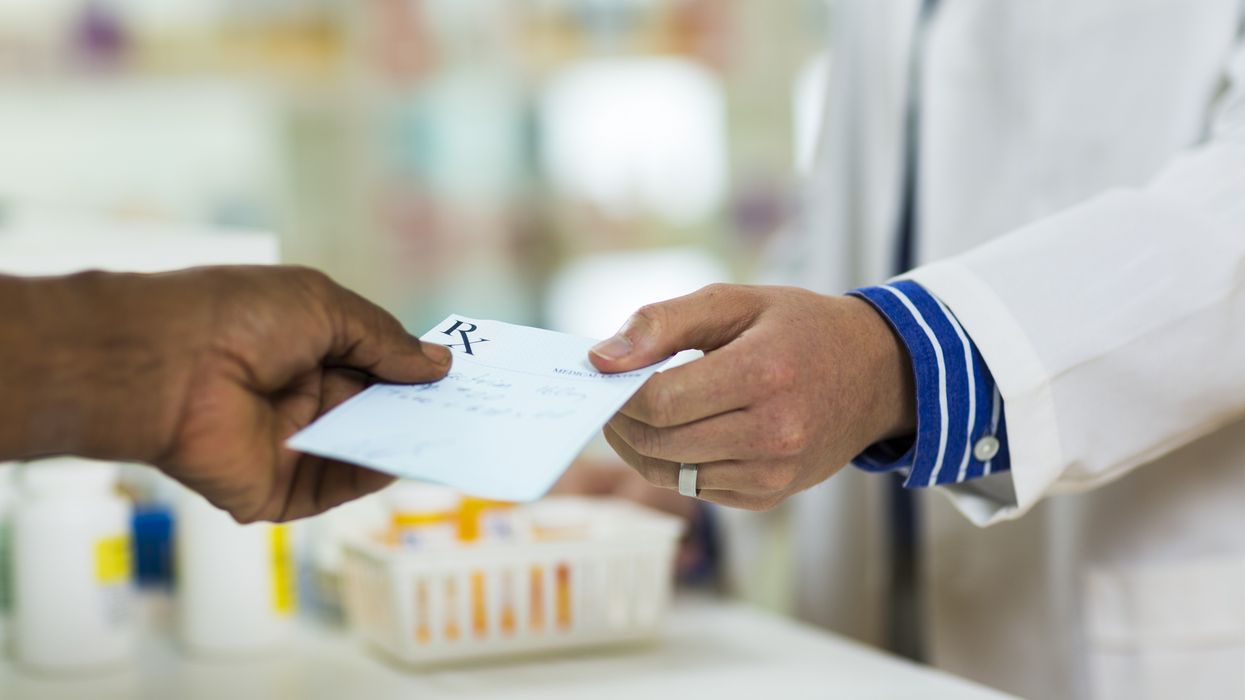The General Pharmaceutical Council (GPhC) has urged members of the public to treat pharmacy staff with respect at all times after the government once again made wearing of masks mandatory to curb the spread of a new variant of coronavirus.
Duncan Rudkin, chief executive of the GPhC, said abuse or violence against pharmacy staff was "completely unacceptable" particularly after they have shown "remarkable dedication and professionalism" over the past 20 months.
His statement came just after prime minister Boris Johnson issued a "call to get jabs in arms" on Wednesday (December 1) as Britain stepped up its Covid-19 booster programme to fend off the Omicron variant after more cases of the new strain were identified.
Britain has now recorded 32 cases of the Omicron variant, which appears to be more transmissible, while tests continue to see whether it causes more severe disease or if vaccines are less effective against it.
Rudkin said: “We know that pharmacy teams are facing another very challenging winter, as they experience high demand from patients and the public and continue to play a central role in delivering vital NHS services, including vaccinations for Covid-19 and flu. It is widely acknowledged that all parts of the healthcare system are facing significant pressures, and pharmacy is no exception.
“The vast majority of patients and the public really appreciate the help and care they receive from pharmacists, pharmacy technicians and other members of the team. But we have heard worrying reports of pharmacy professionals and pharmacy teams working in a range of settings experiencing abuse and even violence from members of the public.
"We want to make clear that any abuse of pharmacy staff is completely unacceptable and robust action should be quickly taken in response to any incidents, including by law enforcement."
Stating that the regulator was impressed by the steps taken by contractors to ensure patient and staff safety, he said GPhC would back them should they want to take further steps "to reduce the risk of staff experiencing abuse or even violence".
Rudkin continued: “We would also urge the public to treat pharmacy staff with respect at all times, and to follow the requirements on wearing face masks, as well as any social distancing measures in place within a pharmacy.
“We are continuing to provide advice in response to issues raised with us, including advising that pharmacy staff should not be asked to work alone because of potential risks to their safety, as well as the safety of patients and the public. Our regulatory standards and guidance are there to help safeguard pharmacy staff, as well as patients and members of the public.”
Meanwhile, the Royal Pharmaceutical Society issued a statement on Thursday welcoming the GPhC position.
"RPS has consistently highlighted abuse as intolerable and condemns it in the strongest terms. We’ve also drawn it to the attention of the National Police Chiefs Council to help ensure a zero-tolerance approach to abuse to help keep pharmacy teams safe.
"We welcome the statement from the GPhC clarifying their view of abuse and violence against pharmacy staff in every setting as ‘completely unacceptable’.
RPS president Professor Claire Anderson added: “No one should experience abuse or violence in the course of their working day.
“Pharmacy teams are an important and valued part of the healthcare workforce and have a right to be treated with respect at all times. They must be able to carry out their vital work such as providing life-saving vaccinations, medicines and advice, without feeling threatened or in danger whilst at work.
“Violence and abuse against hard working pharmacy teams is deplorable and I urge those affected to report it to the Police, so they have the necessary information to build up a picture of what’s happening in local areas. We will continue to raise this topic with the NHS, government, patient groups, the police and across the profession, so that pharmacists and their teams can look after patients safely.”
Likewise, the Company Chemists' Association (CCA) stood alongside GPhC and RPS in condemning "abuse or violence against pharmacy staff".
"Pharmacy staff are working incredibly hard to meet the increased demand from patients and the public this winter to deliver vital care including the Covid-19 and flu vaccination service. As pressures on the healthcare system mounts, we urge patients and the public to treat pharmacy staff with respect and to follow the requirements for face masks and social distancing.
"CCA members takes the safety of their staff, the patients and public very seriously. Our members closely monitor incidents so they are aware of trends and can address concerns. We are concerned to hear of growing rates of violence against staff, including during the Covid-19 pandemic. Whilst some members report that incidents have now returned to pre-pandemic levels, any incident of violent or threatening behaviour is unacceptable.
"We are working closely with our members, the police and other partners to ensure that pharmacies remain as safe an environment for the workforce as possible. Our members want to ensure their business are not just safe, but are desirable places to work and they encourage staff to report all incidents."











